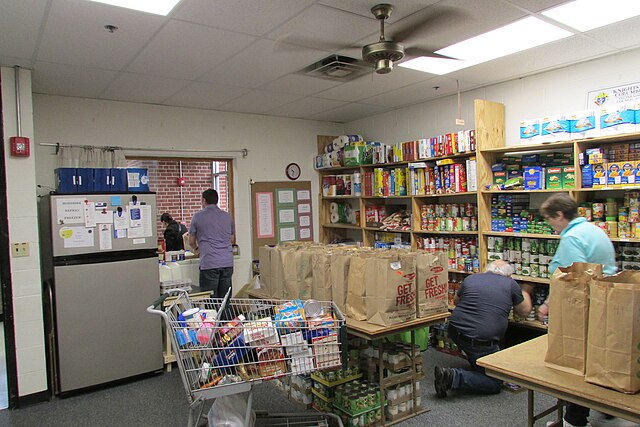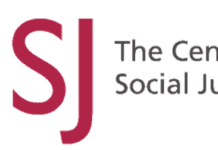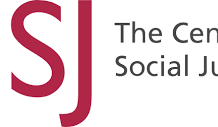Detailed polling reveals that people who turn to food banks are much lonelier than the public at large and that one in five of them say they have no family or friends to support them.
The research conducted by the Centre for Social Justice (CSJ) concludes that the Government risks fostering a dependency culture by subsidising food aid to the tune of £200 million a year.
It calls for a fundamental rethink of the official stance towards food banks, suggesting that ministers would be better advised addressing the “root causes” of food bank use and poverty rather than just the palliative of providing free food.
This mass dependence on emergency food parcels was previously called a “moral scar on our society” in the Labour Party’s General Election manifesto.
CSJ Senior Researcher Josh Nicholson said:
“We need to look far more closely at the root causes of why food bank use is increasing. It’s not all about income and the welfare system can’t provide all the solutions. During the first year of the pandemic, real incomes for the poorest 20 per cent of the population went up – but so did recourse to food banks.
“We are in danger of institutionalising emergency food aid in the UK. The Government’s manifesto commitment to end mass dependence means they must tackle the root causes of food banks. One of these is loneliness and social isolation.”
“In their traditional format, focused solely on the distribution of free food, food banks can only address the symptoms of failing social and economic life.”
The CSJ report, Lonely Nation Part 4: Loneliness and food banks, reveals that food bank use has hit a record high at 2.3 million people living in a household in 2022/23 that has used a food bank in the last 12 months – up by 200,000 on the year before.
Polling conducted by Whitestone Insight for the CSJ indicates that three in five people who have used a food bank in the last year expect to do so again this Christmas.
The CSJ survey points to a worrying link between loneliness and those using food banks. People who use food banks are significantly lonelier than the general population. Just one in four people who use food banks (26 per cent) say they never feel lonely, compared to two in five adults across the general population (40 per cent).
Nearly a third of food bank users (31 per cent) say that most people use food banks because they are isolated.
One in five food bank users say they have no family or friends to support them, over three times the national average of roughly six per cent.
This disturbing trend is compounded by almost 40 per cent of food bank users living alone (39 per cent), compared to just 22 per cent of all adults surveyed by the CSJ.
The food bank crisis is “cultural as well as economic”, concludes the CSJ. It finds that “without engaging with community, family and relational breakdown, any attempt to end the need for food banks will fail”.
Highlighting the frontline experience of small and medium grassroots charities, the report warns that “food banks often serve the needs of volunteers rather than those accessing food aid.” This can happen as well-intentioned volunteers feel a difference is being made, whilst long-term service users remain in a constant state of dependency and lack the advice and support to be able to move out of poverty.
The CSJ calls on the government to avoid repeating the mistakes of the past, criticising the current approach as “merely managed decline” that only addresses the “symptoms” of the problem through its focus on free food rather than tackling the underlying factors behind food bank use.
Its analysis reveals that during the initial year of the pandemic household income for the poorest 20 per cent increased by 3.6 per cent from 2019/20 to 2020/21. Absolute and relative low income (before and after housing costs) and food insecurity also fell during this period. But over the same period, food bank use increased dramatically.
The Trussell Trust, the UK’s largest association of food banks, increased its supply of emergency food parcels from 1.9 million to 2.6 million in the same period.
“It appears improbable that the initial rise in food banks at the onset of the pandemic can be solely explained by a sudden rise in poverty or drop in household income,” the report says.
In the foreword to the report, Denise Bentley Chief Executive of First Love Foundation says:
“When I first established a food bank in Tower Hamlets in 2010, one of the most deprived boroughs in the country, I believed we were addressing the urgent and visible issue of hunger. However, it quickly became evident that hunger was merely a symptom of a far deeper crisis. Many of those who sought our help had endured months, and in some cases years, without income, navigating a system that repeatedly failed to meet their needs. Their challenges extended far beyond material deprivation to include profound social isolation and the erosion of their dignity. It was apparent that food alone could never be the solution.
“To end food bank dependency, we must address not only financial hardship but also its hidden drivers, such as loneliness, social isolation, and systemic failures.”
Noah’s Ark Centre, a charity based in Halifax, said:
“Food banks are not addressing the true need, the true need is not a food parcel, its money advice…In the last eight years we have helped 2,000 families out of debt.
“If food banks are receiving funding from government sources, it should come with caveats to show what you are doing. Even if its signposting as a bare minimum to engage with their projects and money support.
“There should be legal requirements for setting up a foodbank, there needs to be more data sharing, people need to register. You are letting people down if you are just giving food away.”
The CSJ makes five recommendations for changes towards food banks:
- A new ‘root cause test’ for all public funding that is given to food banks and other organisations whose charitable purpose includes the distribution of free and/or subsidised food. This would ensure that tax payers money is spent on addressing the root causes of food bank use and poverty, instead of just treating the symptoms of dysfunctional economic and social arrangements.
- Ensuring that public money is only given to food banks that operate a referral and registration process for their service users. This would ensure that charities are able to understand and address the drivers of food bank use among those who access their services.
- Whenever a public body refers an individual or household to a food bank, they should also be referred to appropriate agencies and services equipped to help them address and overcome the root cause drivers of their food insecurity. This would help to end the bad practice of referring people to food banks without any attempt to address the underlying crisis.
- A new duty on local authorities to increase the co-location of statutory services with small and medium sized charities and food banks. This would ensure that public services are able to reach vulnerable individuals and families effectively.
- Food banks should be encouraged to identify who is accessing food aid due to reasons of loneliness and social isolation and be supported to help service users access other community settings where they can make social connections.

| [donate]
| Help keep news FREE for our readersSupporting your local community newspaper/online news outlet is crucial now more than ever. If you believe in independent journalism,then consider making a valuable contribution by making a one-time or monthly donation. We operate in rural areas where providing unbiased news can be challenging. |



















